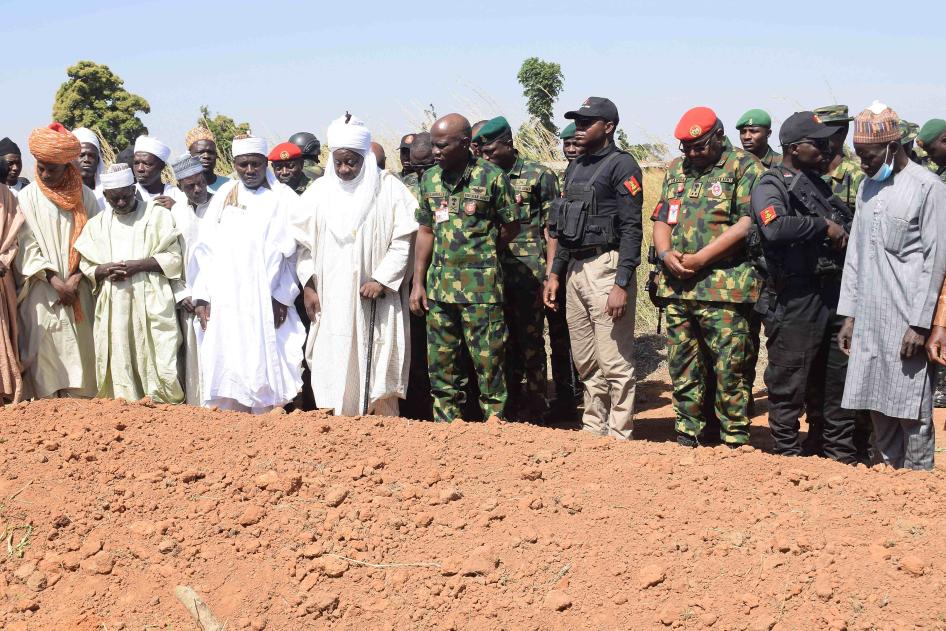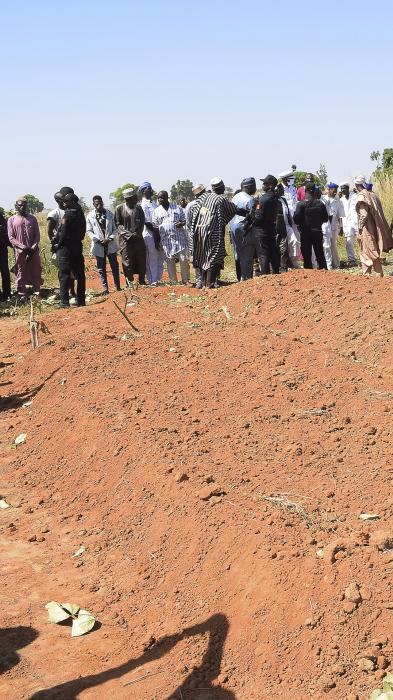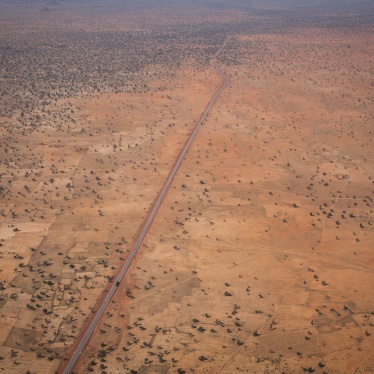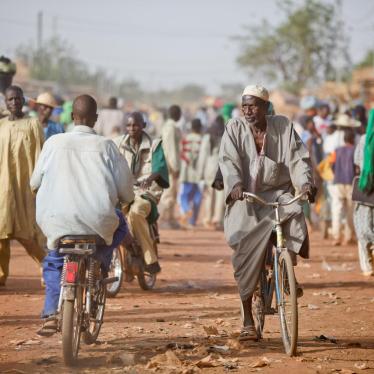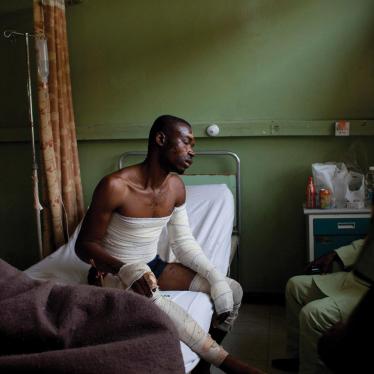(Abuja) – Nigerian authorities should thoroughly and impartially investigate why army airstrikes in northwestern Kaduna state on December 3, 2023, killed 85 people at a religious celebration and severely injured dozens of others, Human Rights Watch said today. They should also adequately compensate the survivors and the loved ones of those killed and provide services to help them recover from their injuries and trauma.
The airstrikes were the latest in a series of Nigerian military attacks that have erroneously killed civilians. They hit people gathered for Maulud, a Muslim religious event, in the Tundun Biri community in Igabi Local Government Area of Kaduna state. Kaduna is among several states in Nigeria’s northwest where criminal gangs, commonly referred to as bandits, kill, pilfer, and kidnap for ransom. The authorities describe these gangs as terrorist groups. Security forces’ responses, including air operations, are often abusive.
“It’s unconscionable that the Nigerian military continues to kill people just trying to go about their lives in erroneous air strikes,” said Anietie Ewang, Nigeria researcher at Human Rights Watch. “This attack calls for much needed scrutiny into the activities of the security forces to prevent any further killings and provide redress for victims, beginning with an independent, impartial, and transparent inquiry.”
Human Rights Watch interviewed four people, including two witnesses at the scene who lost loved ones and one injured survivor.
Witnesses said that the celebration was in progress around 9:45 to 9:50 p.m. when the first bomb dropped, killing about 56 people, most of them women and children. They described the scene as total chaos, especially when survivors began calling family members of victims from nearby villages to come to the scene, identifying and carrying dead bodies and helping those injured. They said that at around 11 p.m., a second bomb was dropped, killing many responders from nearby villages.
One witness said that when the second bomb fell, they ran for cover and stayed hidden for hours. They described the horrific scene they found when they came back, including people lying on the ground, covered in blood, with shattered limbs. They said they had to gather body parts, put them in bags, and use leaves to cover dead bodies.
A survivor who suffered fractures and bruising in his neck and chest said he was at home about to go to sleep when he heard a heavy sound like thunder followed by screams and cries. He said he rushed to the scene to find his wife and children, who were at the event, and found bodies scattered everywhere.
“I was hugging my son, who had a broken leg, when they dropped the second explosive on us,” he said. “I lost all my five children and their mother.”
One person said that he lost 14 family members, including his 17-year-old daughter, his three nieces, two nephews, and his brother. “We are in serious trauma,” he said. “We know government won’t do anything because it is the military that is involved.”
People interviewed said that about 71 people had serious injuries including fractures to their legs, waistline area, and ribs, as well as open wounds that left their bones and flesh visible.
Since 2017, over 300 people are reported to have been killed by airstrikes that security forces claimed were intended for bandits or members of Islamist armed group Boko Haram, but instead hit local populations.
The authorities have taken no concrete actions to provide justice or accountability or to ensure that its operations going forward better protect civilians. In October 2022, the Nigerian Air Force announced that it had opened an investigation into accidental airstrikes on civilians, but it has provided no further details since.
On December 4, the Nigerian Air Force dismissed claims that it was responsible for the Kaduna state attacks, saying that it is not the only agency carrying out operations with drones, which the Kaduna state governor said were used in the attacks.
The army has since claimed responsibility for the airstrike, which officials described as a routine mission against terrorists which “inadvertently affected members of the community.”
Human Rights Watch has previously raised concerns about the use of drones by the Nigerian security forces in addressing the activities of criminal groups, given the likely loss of life. In June, Human Rights Watch documented that six months after the killings of 39 civilians in January in a similar erroneous attack, the authorities had not provided full accountability for their actions or compensation to the victims and their families.
The Nigerian Air Force, in its engagement with Human Rights Watch during the investigation, stated that it carried out the January strike to combat “bandits” and “terrorists” based on credible intelligence and in cooperation with other security forces and agencies in Nasarawa state. The air force, however, did not answer key questions, including how information regarding the suspected threat was considered and verified, whether efforts were made to investigate and verify the identity of those targeted, or if any assessment was carried out before the airstrike to avoid or mitigate civilian harm.
Nigerian security forces are bound under international human rights law to use force only if unavoidable, and even then, with restraint and in proportion to the circumstances. Intentional lethal use of firearms should only be employed when strictly unavoidable to protect life.
If the violence involving bandits has risen to protracted armed violence between government authorities and organized armed groups, it may amount to a non-international armed conflict. If this is the case, Nigerian authorities are required under international humanitarian law, which governs the use of force in armed conflicts, to take all feasible precautions to minimize harm to civilians and civilian objects. Deliberate or indiscriminate attacks on civilians, including attacks in which there is no military target, are prohibited.
On December 5, President Bola Ahmed Tinubu called for an investigation into the incident in Kaduna, but investigations should include other erroneous airstrikes to thoroughly scrutinize military operations and ensure that they improve protection of civilians.
“The authorities should ensure accountability and take necessary steps to stop these unacceptable mistakes that have caused needless deaths,” Ewang said. “Foreign governments supporting the military should also pressure the authorities to scrutinize their security operations, adopt necessary measures to avoid harm to local populations, and adequately compensate victims and their families.”
